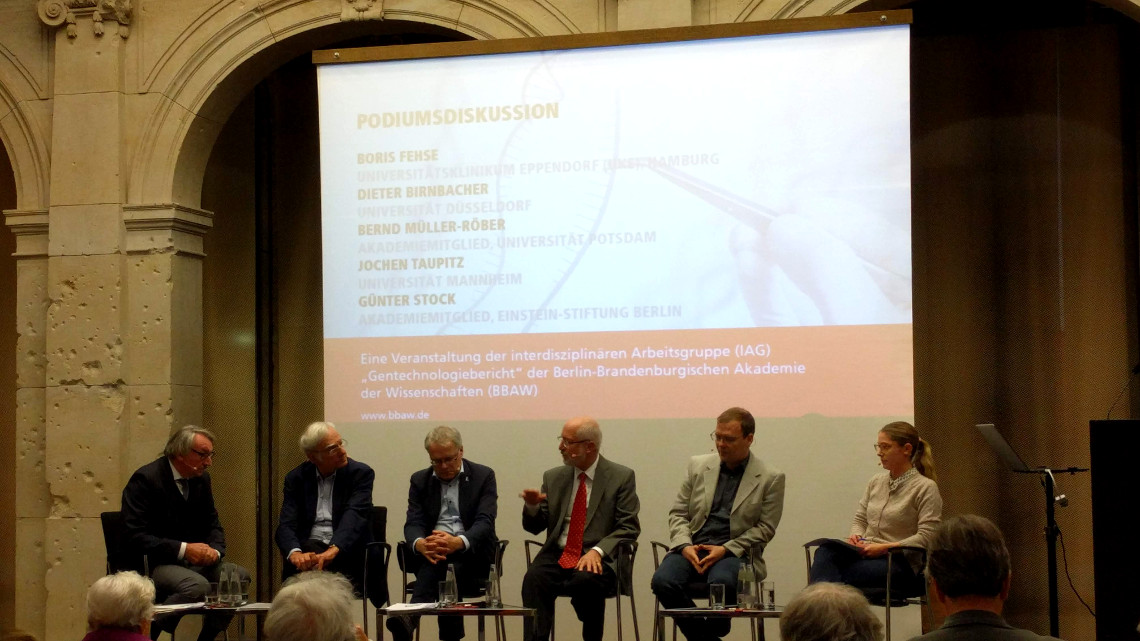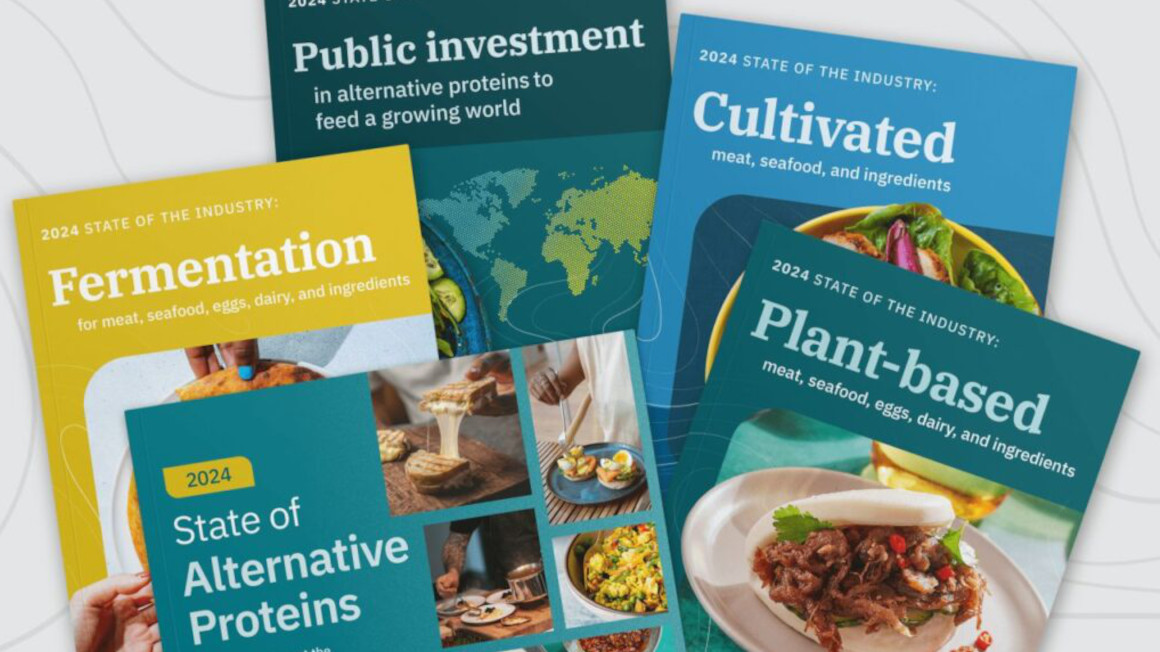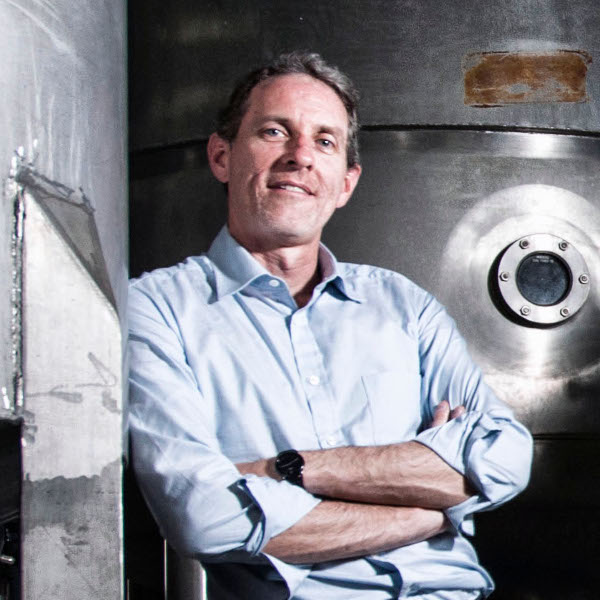CRISPR-Cas: the future of genetic engineering
The fourth gene technology report by the Berlin-Brandenburg Academy of Sciences and Humanities has been published. The authors urge to rethink the regulation of CRISPR-Cas products.

Mutagenic technologies, such as the CRISPR-Cas genome editing tool, have numerous applications in both green, i.e. plant biotechnology, as well as red, medical biotechnology. At the same time, as of yet, little is known about possible side effects of this method. In 2012, molecular biologists Jennifer Doudna and Emmanuelle Charpentier first described the CRISPR-Cas gene editing method in the journal "Science". Since then, several researchers and biotech companies have used the method to breed for instance drought-resistant crops. However, what works well in the laboratory is strictly regulated in the field and on the market: The ECJ ruling last July states that products produced with CRISPR-Cas are subject to the strict regulations of genetically modified organisms (GMOs).
Documenting progress
Given the many technical possibilities of CRISPR-Cas, many ethical questions arise regarding specifically induced genetic alterations. In order to document the methodological progress and to accompany the ethical discussion, the interdisciplinary working group (IAG) "Gene Technology Report" of the Berlin-Brandenburg Academy of Sciences and Humanities (BBAW) has prepared the fourth edition of the Gene Technology Report. Under the banner of "New challenges for "old" monitoring", the authors presented the report on the evening of 29 October in the BBAW building in Berlin-Mitte to around 150 interested guests and subsequently discussed key points of it during a panel discussion. While the report highlights various developments and technologies and makes corresponding recommendations regarding research funding, the legal framework and an open discourse with the public, the evening event focused on the potential and pitfalls of the CRISPR-Cas technology in the context of pre-implantation diagnostics, i.e. the selection of healthy embryos, and as a tool for plant breeding.
The Gene Technology Report 4.0 was originally conceived as the final report of the IAG after 18 years of work. However, due to the potential and the many possible fields of application of the new genome editing tool CRISPR-Cas, the decision was made to continue the IAG and to prepare the Gene Technology Report 4.0 as an interim report. BBAW President Martin Grötschel also emphasized this in his welcoming address: "ONe the one hand, the fourth Gene Technology Report serves to take stock of the work over the last 18 years. At the same time, however, it should also be seen as an outlook towards the future". Another goal of this report, like the previous ones, is to provide an objective frame to the public discourse, Grötschel continued.
ECJ judgement completely incomprehensible
Ferdinand Hucho, member of the BBAW and deputy spokesman of the IAG, then gave a brief insight into the views and inner workings of the IAG. With "horror", the IAG had reacted to the surprising genetic engineering ruling of the ECJ in July. "CRISPR-Cas is a true quantum leap for genetic engineering and holds numerous application possibilities, especially for food security. It is therefore completely incomprehensible to us that products manufactured with CRISPR-Cas fall under the restrictive GMO regulation," said Hucho.
Bernd Müller-Röber, member of the BBAW, Professor of Molecular Biology at the University of Potsdam and sole representative of the area of green biotechnology during the panel discussion, also addressed this issue. In his lecture, Müller-Röber pointed out that any kind of breeding involves changing the genetic material - however, depending on the breeding method, this can be lengthy and very inaccurate. In addition, conventional genetic engineering methods often involve introducing foreign DNA into the plants in order to achieve a desired trait. CRISPR-Cas, on the other hand, offers the possibility of directly altering the genetic material without using foreign DNA. "This makes it possible, for example, to grow drought-resistant plants more quickly and specifically," said Müller-Röber. In addition, genetically modified plants such as soy or maize have been cultivated worldwide for years, including in Germany - without any noticeable side effects.
Industry is leaving the EU
Basic research in particular had benefited enormously from the new method. "CRISPR-Cas really was a game changer for basic research. This allows us to work much faster and more precisely in the laboratory," emphasized Müller-Röber. However, the decision of the ECJ has made it almost impossible to cultivate a tomato bred in the laboratory in a field, let alone bringing it to market. As a result, several biotech companies such as the largest Dutch potato grower and supplier HZPC have already outsourced their research on CRISPR-Cas outside of the EU.
Günter Stock, President of ALLEA - All European Academics, Chairman of the Board of the Einstein Foundation Berlin and member of the BBAW, agreed: "CRISPR-Cas may still be widespread in basic research laboratories in Germany. However, industrial and application-oriented research in this field have left Germany following the ECJ."
Scientists demand new legal regulation
Meanwhile, scientists from more than 85 research institutes have openly endorsed a position paper calling on European legislators to support and protect plant research and, above all, its application in the field. They are committed to not classifying cultivated plants and their fruits according to their type of cultivation, but on the basis of the product. For example, fruits from a CRISPR-Cas breeding do not contain any foreign DNA and also have fewer genetic side effects than a fruit developed with radioactive irradiation.
Jochen Taupitz, co-author of the genetic engineering report, also left little room for interpretation in his statement: "Sooner or later the EU genetic engineering laws will crumble. Not how a product is generated but the product itself should be regulated." Taupitz is a member of the IAG and Professor of Law and Economics at the University of Mannheim.
The conclusion of all authors of the report is clear: in order to keep up with medical and plant genetic engineering research and application internationally and, above all, globally, an open, objective dialogue between research, politics and society must take place that de-demonises genetic engineering and its applications and strengthens Germany as a research hub and ideal industry location.
jmr


